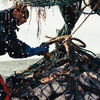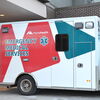Processing Your Payment
Please do not leave this page until complete. This can take a few moments.
- News
-
Editions
-
- Lists
-
Viewpoints
-
Our Events
-
Event Info
- Business Leaders of the Year Reception 2025
- Women's Leadership Forum 2025
- On the Road with Mainebiz in Bethel
- Health Care Forum 2025
- On The Road with Mainebiz in Greenville
- On The Road with Mainebiz in Waterville
- Small Business Forum 2025
- Outstanding Women in Business Reception 2025
- On The Road with Mainebiz in Bath
- 60 Ideas in 60 Minutes Portland 2025
- 40 Under 40 Awards Reception 2025
- On The Road with Mainebiz in Lewiston / Auburn
- 60 Ideas in 60 Minutes Bangor 2025
Award Honorees
- 2025 Business Leaders of the Year
- 2024 Women to Watch Honorees
- 2024 Business Leaders of the Year
- 2023 NextUp: 40 Under 40 Honorees
- 2023 Women to Watch Honorees
- 2023 Business Leaders of the Year
- 2022 NextUp: 40 Under 40 Honorees
- 2022 Women to Watch Honorees
- 2022 Business Leaders of the Year
-
-
Calendar
-
Biz Marketplace
- News
- Editions
- Lists
- Viewpoints
-
Our Events
Event Info
- View all Events
- Business Leaders of the Year Reception 2025
- Women's Leadership Forum 2025
- On the Road with Mainebiz in Bethel
- Health Care Forum 2025
- On The Road with Mainebiz in Greenville
- + More
- On The Road with Mainebiz in Waterville
- Small Business Forum 2025
- Outstanding Women in Business Reception 2025
- On The Road with Mainebiz in Bath
- 60 Ideas in 60 Minutes Portland 2025
- 40 Under 40 Awards Reception 2025
- On The Road with Mainebiz in Lewiston / Auburn
- 60 Ideas in 60 Minutes Bangor 2025
- - Less
Award Honorees
- 2025 Business Leaders of the Year
- 2024 Women to Watch Honorees
- 2024 Business Leaders of the Year
- 2023 NextUp: 40 Under 40 Honorees
- 2023 Women to Watch Honorees
- 2023 Business Leaders of the Year
- + More
- 2022 NextUp: 40 Under 40 Honorees
- 2022 Women to Watch Honorees
- 2022 Business Leaders of the Year
- Nomination Forms
- Calendar
- Biz Marketplace
Masa Miyake launches farm-to-table restaurant
 PHOTo / Suzanne Madore
Masa Miyake and farm manager Emily Phillips check on specially fed livestock in Freeport, which provide meat for some of the dishes served at Miyake's three Japanese restaurants.
PHOTo / Suzanne Madore
Masa Miyake and farm manager Emily Phillips check on specially fed livestock in Freeport, which provide meat for some of the dishes served at Miyake's three Japanese restaurants.
With two successful Japanese restaurants, Miyake and Pei Men Miyake, already under his belt, co-owner Masa Miyake is going back to his roots to start a more casual eatery in the Miyake restaurant's original location at 129 Spring St. in Portland's West End, with a focus on farm-to-table, original meals.
Portland prides itself as a haven for “foodies” and boasts at least a dozen Japanese restaurants. Just as the Chinese Americanized their food with items like chop suey, Chef Miyake, 50, and co-owner William Garfield, 25, are adapting Japanese food to the Maine palate. And it's not just favorites like California Roll sushi. Miyake and farm manager Emily Phillips raise vegetables and specially fed Hungarian Mangalista pigs, rabbits and chickens in Freeport, aiming to create dishes with a unique taste. Miyake recently sat down with Mainebiz at his new restaurant, Miyake Diner, which he expects to open by mid-August. An edited transcript follows.
Mainebiz: How did you get involved in restaurants?
Masa Miyake: The first time I ate steak I was 10 years old. It was shocking, delicious. When I was 20, I went to New York and worked for six years as a dishwasher and then a chef. I started a French-Italian restaurant in Tokyo that I ran for seven years. I then came back to the United States, which is where I learned Japanese cooking. Because I'm Japanese and worked for an American restaurant, they'd say, 'We're having a party and we need sushi. You're Japanese.' I'd say, 'No, I can't make sushi.' They'd say, 'You're Japanese, you need to make the sushi.' So I started making sushi.
MB: Why did you open the original Miyake in the West End, and why are you returning?
MM: I visited Maine on vacation, and we moved to the countryside. My dream was growing a few pigs, chickens and vegetables by myself and working somewhere. But the owners of a small pizza place [in the West End] asked me if I was interested in buying the lease for $20,000. I took it over in June 2007. But it only had an electric stove. So I put in a sushi bar, because you don't need gas. We served tsubo-style sushi and interesting dishes. A chef came in, Rob Evans [former Hugo's owner], and told the newspapers the place to go is Miyake. So he introduced us around. At the time we were small. My customers wouldn't spend $100 a year. That's why we moved [Miyake] to the new location in 2011. It became gourmet style. Two people typically pay $150 with a drink. But our former customers were missing us and asking when we'd come back. This space is my roots, I started here, so I decided to reopen. It won't be the old Miyake. We're developing a menu with something new for Portland, new ingredients. And we'll serve liquor here. It will be casual izakaya style [small bar with food]. So sake or beer with one dish will be $15.
MB: Does your local sourcing strategy add a lot to your costs?
MM: Pei Man sources 80%–90% locally, but we bring in raw fish from Japan for Miyake. The value of the goods is more expensive, but that's offset by what customers see as an honest effort. People know we are unique. We had $1.1 million sales at Pei Man Miyake last year, $900,000 at Miyake and we had $650,000 at the original restaurant. The new restaurant will have 16 seats and serve just dinner this year. We expect $400,000 to $500,000 in sales. We also have a catering business, and expect to do more. Now sales are 85% restaurants and 15% catering.
MB: What are the key ingredients to making a restaurant successful?
MM: It's food, the chef and the energy or hospitality. New York always has new food. Maine needs this, too. We want to bring monjya [a trendy snack in Japan made with batter and finely chopped ingredients] here. Also, every meal I make is different every time. New ideas aren't bad, even if they don't work.









Comments